Business
Dollar Remittance: Presidency Wades Into CBN, NNPC ‘Feud’

The presidency has waded into the controversy raging between the Central Bank of Nigeria (CBN) and the Nigeria National Petroleum Corporation Limited (NNPC) over the dwindling fortune of the naira, Daily Trust gathered from reliable sources yesterday.
The CBN on Friday blamed the non-remittance of dollars to foreign reserves by NNPC as the reason for the plunge of the naira in the official and parallel markets.
At the time of the allegation, the naira traded for N700/$1 at the parallel market and N415.96/$1 at the official market.
But in what could be seen as contradicting the CBN claim, a document from the NNPC on Sunday showed that the company remitted a total of $2.7bn into its accounts with the CBN from January to June this year.
Financial experts and some Nigerians were taken aback at the counterclaims by the federal government institutions with some of them describing the development as “an embarrassment” to the country.
‘Controversy being resolved’
Although the spokesman for the CBN, Mr Osita Nwanisobi, was not immediately available for comments, some top officials of the apex bank said the presidency had waded into the matter.
One of them said, “As we speak, there is a meeting over this issue at the presidency to resolve the anomaly because the report that they (NNPC) remitted $2.7bn to the federation is misconceived as money to the government.
“The fund they remitted is not oil imports,” he said.
READ ALSO:
- PDP Crisis: Wike Lists Conditions For Ceasefire
- Abiodun, Ogun Pensioners Clash Over N68bn Unpaid Gratuities
- 2023: INEC Yet To Decide Fate Of Multiple Registrants As CVR Ends
According to him, “The money they remitted was not even up to the forex they require for the importation of white products and that was why they sought augmentation to meet the threshold.”
Another official said it was normal for the NNPC to have operational accounts with the CBN but that remittances into the FAAC were halted by NNPC Ltd for several months as it has been using the fund for the importation of petrol at a subsidised rate.
Daily Trust could not establish the identities of the people in the presidency discussing with leaders of the two establishments but it was learnt that “There was no big deal in the two versions of the story.”
A source said, “Both the CBN and the NNPC are meant to serve the public and we have a big problem at hand: the dwindling fortunes of the naira and the high cost of importing fuel for domestic consumption.
“While the CBN desperately needs the US dollar to stabilise the economy, the NNPC is equally battling hard to ensure that there is no relapse in fuel supply in the country. The two of them don’t want to be found wanting.
“But, of course, you know that failure has no father and this is basically why they are trying to shift the blame. Gladly, with the intervention of the presidency, the controversy will soon fizzle out,” he said.
Daily Trust found that so far, the NNPC had spent N1.1 trillion this year on petrol subsidy just as the government budgeted N4trn to cover petrol subsidy for the 2022 fiscal year ending May 2023.
Despite that, the agency had remitted some funds as explained by officials.
The remittance process
One of the CBN officials explained the remittance process that is generating controversy. The management official said: “What they (NNPC) sent so far in seven months this year is $1.6 million.
“CBN had to guarantee to give them additional funds so they can have enough forex for their imports.”
Further enquiries by this newspaper to top officials of CBN, NNPC Ltd and other agencies indicated that the remittance by the national oil company was funds meant for operations and not as accrued revenues to the government.
Before now, NNPC, a national oil corporation does business and remits oil sales proceeds to the Consolidated Revenue Fund (CRF), which is part of the funds shared monthly by the Federation Accounts Allocation Committee (FAAC) to the federal, state and local governments.
However, since January, there has been no known contribution from the NNPC Ltd to the FAAC funds according to the monthly FAAC data report and official pronouncements.
How the controversy started
The CBN Governor, Godwin Emefiele was summoned by the Senate last week over the rate at which the naira was crashing. This followed the adoption of a motion by Senator Olubunmi Adetunmbi (APC, Ekiti North).
Contributing to the debate, Senator Sani Musa (Niger East), said the naira would appreciate if Nigerians consume what they produce.
Senator Biodun Olujimi (Ekiti South) said, “The time has come for us to look holistically into what is happening. What is happening to the dollar is a replica of what is happening to Nigeria,” she said.
The Senate thereafter asked the CBN to stop the rapid decline of the value of the naira.
READ ALSO:
- Man kills sister’s friend over N50,000, buries corpse in room
- Obi, Tinubu divide PDP, APC stalwarts in Enugu
- PDP sets to meet Wike, aggrieved members – BoT Chairman
It was after the resolution of the Senate that the CBN governor brought in the NNPC angle to the matter.
While the CBN said there had been a “zero-dollar” remittance to the country’s foreign reserve by the NNPC Ltd, the report attributed to the NNPC payment document at the weekend stated that the corporation had remitted $2.7 billion into its accounts with the CBN from January to June this year, which could strengthen the naira.
According to the document, $645 million was for dividends paid by the Nigerian Liquefied Natural Gas Company Ltd, while $1.786bn was from the NNPC operational activities.
A breakdown of the NNPC remittances showed that funds into the NNPC accounts included; $18,770,418.97 paid into its account with CBN in January; $194,563,276.49 paid in February and $373,232,875.20 paid in March 2022. In April, NNPC Ltd paid $247,884,295.52; paid $591,565,425.41 in May and $880,906,761.81 in June.
When contacted to explain what is happening, the Group General Manager, Group Public Affairs Division at NNPC Ltd, Garbadeen Mohammed, confirmed the payment to this paper but stated that he does not know the exact amount and also said the payment was made to the NNPC account with the CBN.
This indicates that the payment was not a cash inflow to the federal account or to FAAC which is shared by the three tiers of government.
“I cannot confirm the exact figure but it is true that NNPC Ltd has remitted over two billion dollars into NNPC’s accounts with the CBN in the last six months,” he said.
Data from FAAC showed that NNPC ought to remit N122.7bn every month to FAAC this year from its trade and so far, it has not remitted for six months.
During a side-line interview a fortnight ago at the unveiling of the commercialised NNPC Ltd by President Muhammadu Buhari, the Group CEO of NNPC Ltd, Mele Kyari, said: “We are now a private company. Will MTN go to FAAC? We will pay our taxes; we will pay our royalties and we will deliver dividends to our shareholders.”
On the arrears before the July 19 transition, the GCEO said, “Which arrears? That was the Nigerian National Petroleum Corporation.”
Finance minister mum
When contacted for clarification on the $2.7bn NNPC payments by NNPC and why it did not reflect in the June FAAC report, the Minister of Finance, Budget and National Planning, Mrs Zainab Ahmed, did not respond to a text message sent to her mobile line and WhatsApp.
However, at the public consultation on the 2023 – 2025 Medium Term Expenditure Framework and Fiscal Strategic Paper (MTEF and FSP) in Abuja recently, she explained why the NNPC stopped remittances to FAAC.
She had said, “The new arrangement (is that) NNPC will not be contributing to FAAC on a monthly basis, but NNPC will still be paying taxes, royalties and dividends.
“But let me also say that prior to the NNPC transiting, for about eight months we have not been receiving any revenues. Why are we not receiving any revenues from the NNPC? (It is) because the NNPC has been instructed to cover the cost of fuel subsidy on behalf of the federation.”
Business
NNPC Raises Petrol Price to ₦933 in Lagos, ₦960 in Abuja

NNPC Raises Petrol Price to ₦933 in Lagos, ₦960 in Abuja
The Nigerian National Petroleum Company Limited (NNPC) has increased the pump price of petrol at its retail stations to ₦933 per litre in Lagos and ₦960 per litre in Abuja, triggering fresh concerns among motorists and businesses over rising fuel costs in Nigeria.
The national oil company raised the price by ₦103 in Lagos, moving from ₦830 per litre to ₦933, while motorists in the federal capital Abuja now pay ₦960 per litre, representing an ₦85 increase from the previous ₦875 price.
Checks on Wednesday showed that the new petrol price has already been implemented at several NNPC retail outlets, including stations at Apple Junction and Ago Palace Way in Lagos, while stations along Airport Road in Lugbe, Abuja, were dispensing petrol at the new ₦960 rate.
The latest fuel price hike comes shortly after the Dangote Petroleum Refinery increased its ex-gantry petrol price to ₦874 per litre on March 2, up from ₦774 per litre, a development that has influenced retail pricing across the downstream petroleum sector.
Industry analysts say the rise in petrol prices in Nigeria is closely linked to growing geopolitical tensions in the Middle East, which have unsettled global energy markets and pushed up crude oil prices.
READ ALSO:
- Yul Edochie Blasts Arise TV Anchor Rufai Oseni in Viral Video
- Court Discharges Abba Kyari, Brothers in NDLEA Non-Disclosure of Assets Case
- Kano State House of Assembly Initiates Impeachment Proceedings Against Deputy Gov
Recent market data shows that Brent crude oil rose to about $85 per barrel on March 3, compared with around $72 per barrel recorded on February 28, intensifying pressure on petrol landing costs for markets that still rely partly on imports.
Experts note that Nigeria’s deregulated fuel market means pump prices now fluctuate in response to international oil prices, exchange rate volatility, and supply chain costs.
Meanwhile, the Petroleum Products Retail Outlets Owners Association of Nigeria (PETROAN) has called on the federal government to ensure steady crude oil supply to domestic refineries, particularly as Nigeria seeks to strengthen local refining capacity.
The association warned that continued instability in global oil markets could weaken the naira, raise petrol prices further, and push inflation higher, thereby worsening the cost-of-living challenges faced by Nigerians.
Energy stakeholders have also stressed the importance of expanding local refining operations, including production from the Dangote refinery and rehabilitation of government-owned refineries, to reduce dependence on imported fuel.
The latest price adjustment reflects the ongoing transition in Nigeria’s downstream petroleum sector following the removal of fuel subsidies and the adoption of a market-driven pricing system.
Motorists across Lagos, Abuja and other major cities have expressed concern that rising petrol prices could increase transportation costs, food prices and overall inflation, placing additional pressure on households and businesses.
NNPC Raises Petrol Price to ₦933 in Lagos, ₦960 in Abuja
Business
TCAN Targets Logistics Reforms to Drive Economic Growth at 2026 Transport Summit
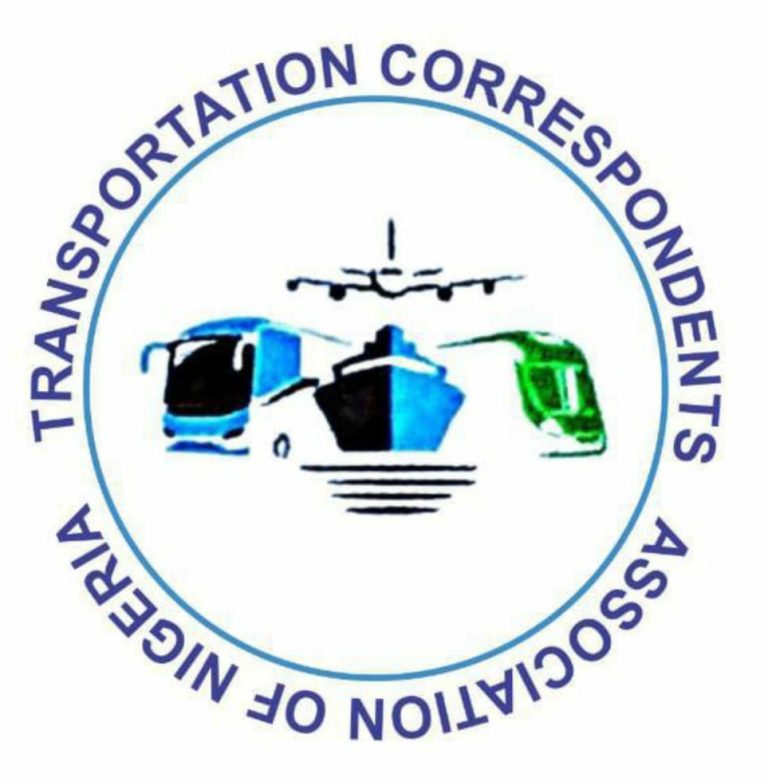
TCAN Targets Logistics Reforms to Drive Economic Growth at 2026 Transport Summit
The Transportation Correspondents Association of Nigeria (TCAN) has begun preparations for its 2026 Annual Transport Summit, placing Nigeria’s logistics value chain at the centre of national economic discourse.
Scheduled for September 2026 in Lagos, the summit will be held under the theme, “Unlocking Economic Growth Through Transportation Logistics.”
It is expected to draw major stakeholders across the aviation, maritime, rail and road transport sectors, alongside logistics service providers, policymakers, regulators, development partners and financial institutions.
In a statement, TCAN said the summit would critically examine how efficient transportation logistics can serve as a catalyst for sustainable economic growth, trade facilitation, job creation and regional integration, especially in the context of ongoing reforms and infrastructure investments within the sector.
Chairman of TCAN, Tola Adenubi, described transportation logistics as the backbone of economic development, stressing that the performance of Nigeria’s logistics ecosystem directly impacts the nation’s competitiveness.
“From cargo handling at airports and seaports to inland freight movement and last-mile delivery systems, the efficiency of Nigeria’s logistics architecture plays a decisive role in determining the competitiveness of the nation’s economy,” Adenubi said.
He noted that the 2026 summit would explore innovative strategies to strengthen the sector, including digital transformation, infrastructure financing models, public-private partnerships and regulatory reforms aimed at optimising performance.
Chairman of the 2026 Conference Committee, Suleiman Idris, said the summit would feature high-level panel discussions, keynote addresses and interactive sessions designed to assess the current state of Nigeria’s transportation logistics framework.
According to him, deliberations will focus on identifying bottlenecks hindering seamless cargo and passenger movement, examining the impact of multimodal transport integration on economic expansion, and highlighting investment opportunities within the logistics and supply chain ecosystem.
Idris added that experts at the summit would also provide policy recommendations targeted at enhancing operational efficiency and boosting Nigeria’s global competitiveness in trade and transportation.
As part of the programme, TCAN will confer its Champions of Transport Industry Development (COTID) certificates on selected government agencies and private operators that have made significant contributions to the advancement of Nigeria’s transportation sector.
Over the years, the TCAN Annual Transport Summit has evolved into a credible platform for constructive engagement between regulators, operators and other industry stakeholders.
The association said the 2026 edition aims to deepen policy conversations, promote transparency and accountability, and accelerate reforms capable of unlocking the full economic potential of Nigeria’s transport and logistics industry.
With logistics increasingly recognised as a key enabler of economic growth, industry observers expect the 2026 summit to set the tone for fresh strategies that could reshape Nigeria’s transportation landscape in the years ahead.
Business
Petrol Jumps to ₦937 in Lagos, ₦975 in Abuja Amid Middle East Oil Crisis

Petrol Jumps to ₦937 in Lagos, ₦975 in Abuja Amid Middle East Oil Crisis
Nigeria’s fuel market is under renewed strain as escalating tensions in the Middle East push global crude oil prices above $80 per barrel, driving domestic petrol prices toward the ₦1,000 per litre mark. Motorists across the country, from Lagos to Abuja, have woken to sharp increases at filling stations, with pump prices rising almost overnight.
In Lagos, several outlets raised the price of Premium Motor Spirit (PMS) from ₦830–₦835 per litre to ₦937, while in the Federal Capital Territory, major retailers including NNPC Limited and MRS Oil Nigeria Plc increased prices from ₦875 to ₦975 per litre. Independent marketers were dispensing fuel at about ₦960 per litre, reflecting the immediate effects of rising international oil prices.
The surge followed a fresh upward review in the ex-depot price by Dangote Petroleum Refinery & Petrochemicals, which moved its gantry price from ₦774 to approximately ₦874–₦875 per litre. Industry insiders linked the hike to rising replacement costs and the ongoing surge in crude prices. A senior refinery official confirmed that petrol loading operations were temporarily suspended earlier in the week, further tightening supply expectations and accelerating retail price adjustments.
READ ALSO:
- US Military Says It Has Struck Nearly 2,000 Targets in Iran as War Escalates
- FG Bans Roadblocks, Cash Tax Collection Nationwide
- Trade Row Looms as Trump Threatens Spain After Refusal to Support Iran Strikes
The Middle East conflict, particularly involving the United States, Israel, and Iran, has heightened fears of disruption around the Strait of Hormuz, a strategic maritime route responsible for nearly one-fifth of global crude supply. Analysts warn that prolonged instability in the corridor could push global oil prices to $100 per barrel or higher, with direct consequences for Nigeria’s cost-reflective petrol pricing system.
The Petroleum Products Retail Outlets Owners Association of Nigeria (PETROAN) described the situation as worrisome, noting that rising crude prices inevitably feed into domestic pump prices, given the current deregulated pricing regime. PETROAN’s National President, Mr Billy Gillis-Harry, emphasized the urgent need to strengthen Nigeria’s domestic refining capacity as a protective buffer. The association also called for consistent crude supply to local refineries and accelerated rehabilitation of the country’s four state-owned refineries to cushion the economy against external shocks.
For Nigerians, the impact has been immediate. Commercial drivers and commuters report that rising fuel costs are forcing them to adjust transport fares, adding pressure to household budgets. “I bought fuel yesterday at ₦875, and this morning it is ₦975. Every increase affects us directly. If we don’t raise fares, we run at a loss,” said Mr. Chinedu Okeke, a driver in Abuja.
Commuters fear the ripple effect of higher petrol costs on everyday goods. “If fuel is almost ₦1,000 per litre, it means fares and prices of essentials will rise. Things are becoming unbearable,” said Mrs. Aisha Ladan, a civil servant in the capital city. Analysts warn that increased transport costs could widen inflationary pressures, as businesses pass on higher operational expenses to consumers.
The psychological impact of petrol nearing the four-digit mark is also significant. For many Nigerians, it represents another milestone in a period already marked by subsidy removal, currency volatility, and persistent price adjustments. Unless global energy markets stabilize or domestic refining capacity is expanded, petrol prices in Nigeria may soon cross ₦1,000 per litre, with broad implications for the economy.
Petrol Jumps to ₦937 in Lagos, ₦975 in Abuja Amid Middle East Oil Crisis
-
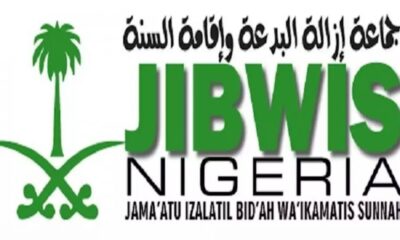
 metro7 hours ago
metro7 hours agoIslamic Scholar Barred From Ramadan Tafseer After Criticising Tinubu, Governors
-
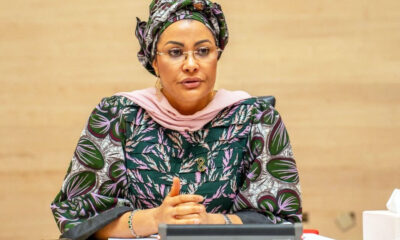
 metro1 day ago
metro1 day agoHow Ikwechegh’s ₦1.15tr Interrogation Led to Tinubu’s Cabinet Shake-Up
-
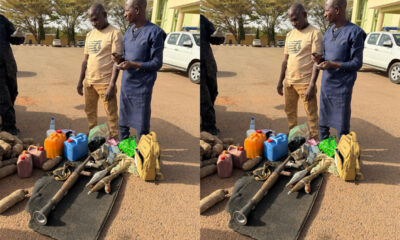
 metro2 days ago
metro2 days agoDSS Busts Alleged Arms Trafficking Network in Gombe, Seizes RPGs
-

 News2 days ago
News2 days agoRelief Radiant Hearts Foundation Launched in Iwo, Promises Hope for the Vulnerable
-

 Politics2 days ago
Politics2 days agoAtiku’s Son Resigns as Adamawa Commissioner Following Fintiri’s APC Defection
-

 International1 day ago
International1 day agoMystery as Iranian Warship Sinks off Sri Lanka, Over 100 Feared Missing
-

 Opinion2 days ago
Opinion2 days agoThe world dislikes the weak, by Hakeem Baba-Ahmed
-
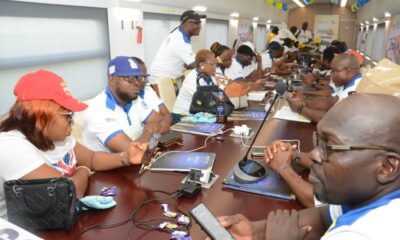
 Railway2 days ago
Railway2 days agoHistoric, Rotary Club of Ota holds fellowship on moving NRC train















